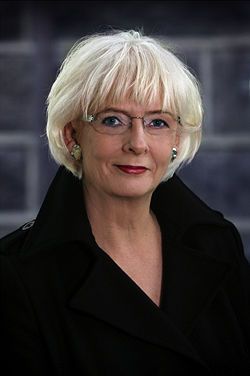Kids of lesbians have fewer behavioral problems, study suggests
- Study finds children of lesbians are well-adjusted, have fewer behavioral problems than peers
- Commonly used Child Behavior Checklist measured children's behavioral, social problems
- Research funded by gay, lesbian advocacy groups; critics question validity
(CNN) -- A nearly 25-year study concluded that children raised in lesbian households were psychologically well-adjusted and had fewer behavioral problems than their peers.
The study, published Monday in the journal Pediatrics, followed 78 lesbian couples who conceived through sperm donations and assessed their children's well-being through a series of questionnaires and interviews.
Funding for the research came from several lesbian, gay, bisexual, and transgender advocacy groups, such as the Gill Foundation and the Lesbian Health Fund from the Gay Lesbian Medical Association.
Dr. Nanette Gartrell, the author of the study, wrote that the "funding sources played no role in the design or conduct of the study."
"My personal investment is in doing reputable research," said Gartrell. "This is a straightforward statistical analysis. It will stand and it has withstood very rigorous peer review by the people who make the decision whether or not to publish it."
Gay parenting remains a controversial issue, with debates about topics including the children's psychological adjustment, their parents' sexual orientation and adoption restrictions.
Wendy Wright, president of the Concerned Women for America, a group that supports biblical values, questioned the legitimacy of the findings from a study funded by gay advocacy groups.
"That proves the prejudice and bias of the study," she said. "This study was clearly designed to come out with one outcome -- to attempt to sway people that children are not detrimentally affected in a homosexual household."
Gartrell started the study in 1986. She recruited subjects through announcements in bookstores, lesbian events and newspapers throughout metro Boston, Massachusetts; San Francisco, California, and Washington.
The mothers were interviewed during pregnancy or the insemination process, and additionally when the children were 2, 5, 10 and 17 years old. Those children are now 18 to 23 years old.
They were interviewed four times as they matured and also completed an online questionnaire at age 17, focusing on their psychological adjustment, peer and family relationships and academic progress.
To assess their well-being, Gartrell used the Child Behavior Checklist, a commonly used standard to measure children's behavioral and social problems, such as anxiety, depression, aggressive behavior and social competence.
The answers were coded into a computer and then analyzed. This data was compared with data from children of nonlesbian families.
The results surprised Gartrell.
"I would have anticipated the kids would be doing as well as the normative sample," she said. "I didn't expect better."
Children from lesbian families rated higher in social, academic and total competence. They also showed lower rates in social, rule-breaking, aggressive problem behavior.
The involvement of mothers may be a contributing factor, in addition to the fact that the pregnancies were planned, Gartrell said.
Tell iReport: Growing up with gay parents
The children "didn't arrive by accident," she said. "The mothers were older... they were waiting for an opportunity to have children and age brings maturity and better parenting."
This also could have occurred because "growing up in households with less power assertion and more parental involvement has been shown to be associated with healthier psychological adjustment," Gartrell wrote in the study.
Some of the teenagers reported being stigmatized by peers because of their parents' sexuality. Researchers compared the figures in terms of the psychological adjustment between children who had experienced stigma versus those who did not.
"We found no differences," Gartrell said. "That leads us to asking why and how are young people managing discrimination? That will be the topic of future papers. We'll look into what the ingredients are to allow them to cope despite adversity."
Gartrell studied only lesbian families, because circumstances surrounding gay male families are different. Gay men becoming fathers is newer in comparison with lesbians, because their options have been limited to adoption or surrogacy. Lesbians often conceive through donor insemination.
"This study shows that the 17-year-old adolescents who have been reared by lesbian families are psychologically happy and high functioning," said Gartrell, a Williams distinguished scholar at the UCLA School of Law. Restrictions of child custody and reproductive technologies based on sexual orientation are not justified, she said.
Wright questioned the objectivity of Gartrell's research, saying the author can "cherry pick people who are involved and the info they release."
"In essence, this study claims to purport that children do better when raised by lesbians," she said.
Studies have shown that children thrive having both a mother and a father, Wright said.
"You have to be a little suspicious of any study that says children being raised by same-sex couples do better or have superior outcomes to children raised with a mother and father," she said. "It just defies common sense and reality."










